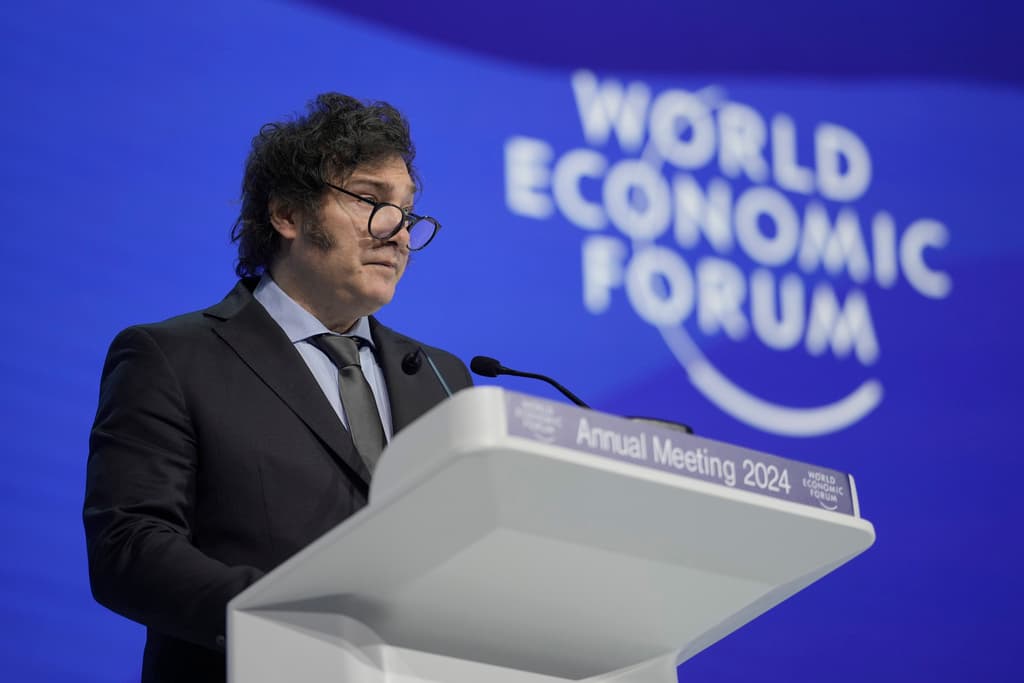Argentina’s New Libertarian President, Javier Milei, Is on a Collision Course With His Country’s Powerful Labor Unions
Unions have promised a ‘total strike’ across the country Wednesday to protest Mr. Milei’s efforts to rein in a once-powerful central government and put Argentina on a path to prosperity.

Argentina’s new Libertarian president, Javier Milei, is on a collision course with his country’s powerful labor unions, a conflict that will come to a head Wednesday when the unions have promised a nationwide “total strike” to protest austerity measures enacted by Mr. Milei since he took office last month.
Union leaders speaking to the Financial Times say they expect as many as 200,000 people to take to the streets of Buenos Aires because the new president is “breaking the social contract” by passing an emergency decree that rolled back worker protections, deregulated many industries and began allowing employees to opt out of union-provided health care.
Around 40 percent of the country’s 13 million workers belong to labor unions that have for decades enjoyed considerable political clout under successive governments headed by leaders of the Peronist movement launched by strongman Juan Peron in the 1950s. That power evaporated overnight when Mr. Milei moved into the Casa Rosada, Argentina’s equivalent of the White House, on December 10.
The leader of Argentina’s Construction Workers Union, Gerardo Martínez, told the Financial Times that he hopes the strike —the earliest ever faced by a newly elected president — will force Mr. Milei to roll back some of his reforms and come to the bargaining table with the unions.
“We are aware that inflation [needs to come down.] We are embarrassed to have a country with this level of poverty,” Mr. Martínez said. “But we can’t accept that the cost of reaching economic stability falls solely on the backs of workers and the middle class.”
The tousle-headed Mr. Milei, who famously brandished a chainsaw during the campaign while promising to slash government spending and eliminate entire departments, has made good on some of those promises early in his tenure. He has slashed energy and transport subsidies and sent a bill to Congress that would privatize many of Argentina’s poorly managed state-run enterprises.
Mr. Milei already has backtracked on other issues, however, in an effort to secure the support of moderates in Congress, including taking off the table a plan to privatize the state-run oil giant, YPF.
While perhaps not exactly enamored by some of his fellow countrymen, Mr. Milei has become the darling of international free-marketeers since his full-throated defense of capitalism and the power of entrepreneurship to lift countries out of poverty during the annual World Economic Forum at Davos last week.
In a speech that has since been translated into dozens of languages, Mr. Milei stunned the normally left-leaning audience at Davos by blaming the decades of economic malaise that has plagued Argentina on the “collectivist” policies of his predecessors. Government, he said, is not the solution to what ails societies. Government is the problem, he said.
“The case of Argentina is an empirical demonstration that no matter how rich you may be, how much you may have in terms of natural resources, how skilled your population may be, how educated, or how many bars of gold you may have in the central bank — if measures are adopted that hinder the free functioning of markets, competition, price systems, trade and ownership of private property, the only possible fate is poverty,” he said.
As much as 40 percent of Argentina’s population is described as living in poverty, and inflation is currently running at a rate of 211 percent annually, the highest rate in 32 years. In Latin America, only Venezuela faces worse inflation than Argentina.
